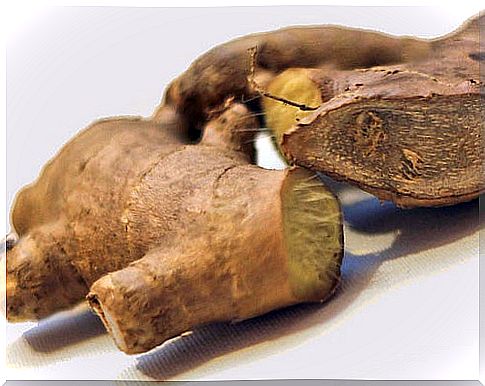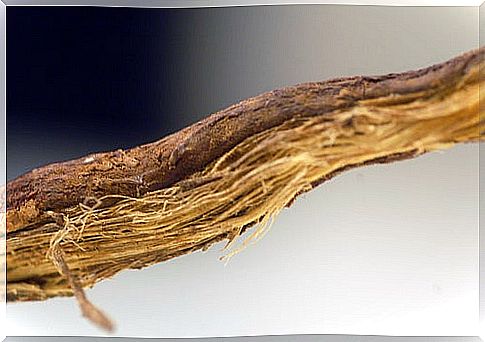Natural Remedies For Hoarseness And Dysphonia
For different reasons, our voice can be affected and lose its potential every day. Is it possible to alleviate this problem naturally?

Hoarseness, which is nothing more than the total loss of the voice, and dysphonia, which involves its partial loss with variations in tone, volume and quality, are very frequent problems that tend to occur due to vocal abuse or misuse. Below we share with you various natural remedies for aphonia and dysphonia that are used in natural medicine and we will tell you whether or not they have scientific endorsement.
Common causes of aphonia and dysphonia
Before detailing the natural alternatives that Ayurvedic medicine recommends to alleviate this problem, let’s review the causes that cause it, according to data from the Spanish Society of Family and Community Medicine. They are very varied, and surely some of them take you by surprise.
- Speak louder than normal.
- Inhalation of tobacco smoke or other irritating gases.
- Ingestion of toxic or irritating products.
- Cough or hoarseness
- Sing with inappropriate techniques.
- Injury to the vocal cords – nodules or polyps.
- Diseases of the respiratory system.
- Extreme temperatures: ingestion of very cold or very hot drinks, low external temperatures, etc.
- Misuse of breath: for example, breathing through the mouth at night.
- Emotional and nervous issues.
If the aphonia lasts more than 3 or 4 days, it is recommended to consult an ENT specialist to perform a visual examination of the larynx and rule out other causes.
Once the origin of the problem has been identified, the doctor will give you a treatment adapted to your needs. In addition, you should eliminate everything that can aggravate inflammation (tobacco, alcohol, among others).
On the other hand, a common recommendation is usually to provide heat to the neck area. Other idea? You could try some of the natural remedies that we will present below.
Natural remedies for hoarseness and dysphonia
Here are some natural foods and supplements to help us get better. People who must make special use of their voice on a daily basis – teachers, speakers, singers, announcers – should do so regularly.
Ginger

Ginger is a spice used for many purposes by traditional Chinese medicine, including to relieve vocal cord discomfort.
Due to its proven anti-inflammatory and antibacterial properties, it is believed that it would help improve hoarseness and hoarseness. We can consume it fresh, in infusion, dehydrated or confit. It is also possible to apply a few drops of ginger essential oil diluted in a little almond oil to the neck.
Antibacterial onion syrup and brown sugar
This syrup is considered effective since the onion is attributed antibacterial activities, which would help fight any kind of bacteria lodged in the throat and that could cause discomfort.
To prepare the second of the options of these natural remedies for aphonia, we must first boil two onions with half a liter of water for 20 minutes. To the remaining liquid, we will add two or three tablespoons of brown sugar; in sips, take this preparation throughout the day.
Thyme infusion
Thyme has several properties, including its antimucolytic, antitussive and balsamic effect that will relieve an itchy throat, according to an article from 2004.
In this case, it will be very useful if we prepare it in infusion, together with the juice of half a lemon and sweetened with honey. We can also gargle.
Propolis
Propolis is a natural element that bees extract from trees. It is considered a healthy component that could act as a natural antibiotic to relieve hoarseness. It should be drunk with hot water throughout the day.
Sage and plantain infusion
These two plants are rich in mucilage, a type of soluble fiber that would have an emollient – softening – and repairing action on the mucous membranes. To take advantage of its virtues, an infusion must be prepared to drink and gargle.
Mix of olive oil, honey and lemon
For the preparation, we will mix a tablespoon of olive oil – first cold pressing -, one of lemon juice and two of honey. Once ready, we will take this preparation in four servings of one tablespoon during the day, until we notice improvement.
Agrimony
Although we have not found research to support its benefits, natural medicine uses this plant to soften the voice and clear the throat. We will take it in extract or in infusion; gargling is also recommended.
Licorice

This root would help us to expectorate and airway inflammation due to anti – inflammatory, antibacterial and antiviral activities highlighted in an article in Acta Pharmaceutica Sinica B .
We will take it as an infusion – it has to boil for a long time if the root is thick – or in natural tablets, which we will find in herbalists. Licorice is not recommended for people with high blood pressure.
Stretching the vocal cords
The stretching of the vocal cords is a curious and surprising exercise that would allow them to reduce inflammation. It consists of taking the tongue with a clean cloth and gently stretching it outwards, moving it slightly in all directions.
You should do this exercise for a few seconds and repeat it two or three times. Although the sensation is strange while we do it, at the end we would notice a greater well-being.
Homeopathy
On the other hand, another option would be to resort to homeopathic remedies, although it is worth noting that there are no studies that prove their effectiveness. Those most frequently used in these cases are:
- For people who have used their voice excessively: Argentum metallicum or Rhus tox.
- For those who have lost their voice after shouting: Arnica.
- If they also have pain : Causticum.
- After a speech in the open air, with continuous changes of tone when speaking: Arum triphillum.
- Hoarseness caused by cold and humidity : Dulcamara.
- Aphonia produced by cold without humidity: Causticum.
- Aphonia of nervous origin: Geslenium.
Once we choose the remedy, we will let three granules dissolve under the tongue three times a day, separated from food, drinks and strong and menthol flavors.
Of course, as a final suggestion, it is always advisable to consult a doctor before undertaking any natural treatment, be it using herbal teas or homeopathy.









